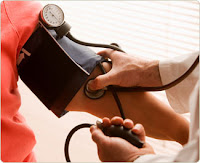If your good looks, vitality and ability to interact with your loved ones ain’t enough to keep you focusing on your health, then how ’bout this: Newly retired couples may need $240,000 throughout their retirement for health care costs alone! Got that saved, boomers? No?… then try something different…like caring for your health now!
This post isn’t just for people entering retirement, it’s for young folk, because the time to care for your health is now, today…not when you get sick. Check it: What you do today, determines how you live tomorrow. That’s right, your current lifestyle habits–and let me emphasize habits, because that occasional drink isn’t hurting you, nor is that occasional walk around the block really exercise–believe it or not, are cumulatively affecting your body for better or for worse. Eat an occasional Big Mac? Big deal. Live off take-out, however, and it’s $240K and counting.

According to a study conducted by Fidelity Investments, a Boston-based consulting firm, the estimated $240,000 that a newly retired couple will need to cover health care expenses reflects the typical pattern of projected annual increases. They cite President Barack Obama’s health care overhaul as the reason for the increase.
 So let’s read between the lines. The average American doesn’t think too much about their health until it goes awry. Then they run to the doctor to get “cured.” The average American drinks more soda than water. The average American over 65 does not exercise. The average American eats a high processed food diet; recent reports even have 42% of all Americans obese by 2030 (not that far off, folks). So yeah, $240,000 for health care actually sounds cheap to me.
So let’s read between the lines. The average American doesn’t think too much about their health until it goes awry. Then they run to the doctor to get “cured.” The average American drinks more soda than water. The average American over 65 does not exercise. The average American eats a high processed food diet; recent reports even have 42% of all Americans obese by 2030 (not that far off, folks). So yeah, $240,000 for health care actually sounds cheap to me.




















